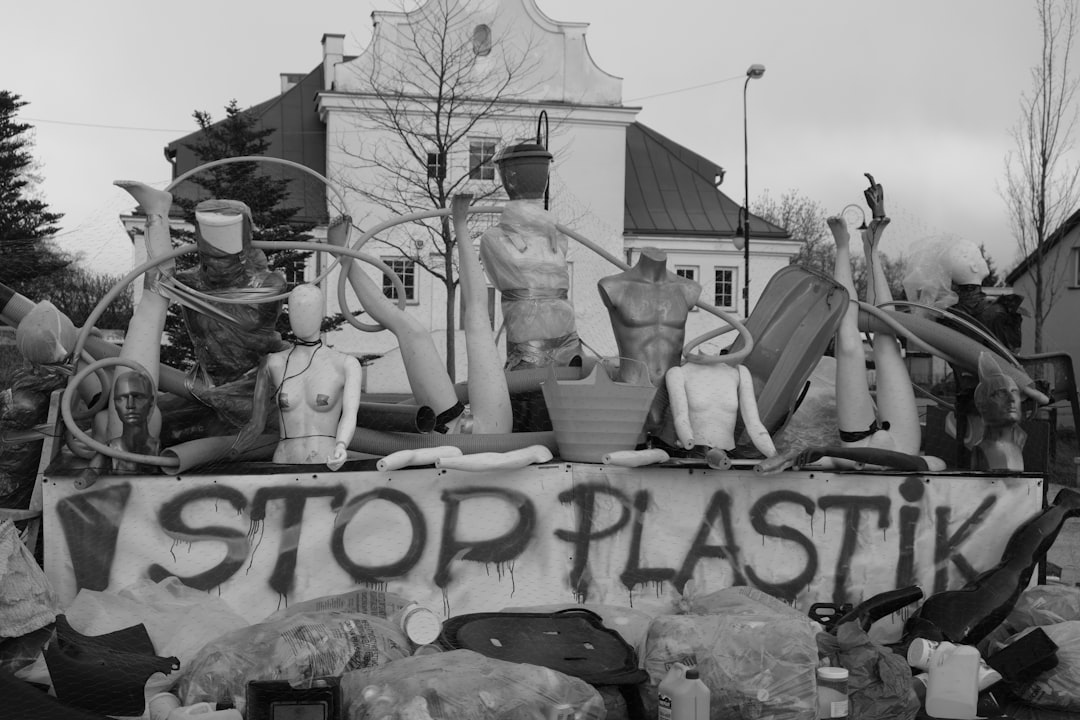“`html
The Rising Tide Against Plastic: A Global Ban in Sight?
The world is drowning in plastic. From microscopic particles in our oceans to mountains of waste in landfills, the sheer volume of plastic production and its subsequent disposal presents a massive environmental challenge. Now, climate activists are ramping up pressure for a global ban on plastic production, arguing that it’s a crucial step in combating both pollution and climate change. This isn’t just about cleaning up beaches; it’s about fundamentally rethinking our relationship with this ubiquitous material.
Why a Plastic Ban? The Environmental Argument
The argument for a global plastic ban rests on several key pillars:
- Pollution: Plastic doesn’t biodegrade easily. It breaks down into smaller and smaller pieces, known as microplastics, which contaminate our soil, water, and even the air we breathe. These microplastics are ingested by marine life and make their way up the food chain, eventually reaching humans.
- Climate Change: Plastic production relies heavily on fossil fuels. From the extraction of raw materials to the manufacturing process, the entire lifecycle of plastic contributes significantly to greenhouse gas emissions. Reducing plastic production is therefore seen as a direct way to lower our carbon footprint.
- Habitat Destruction: Plastic waste often ends up in the ocean, where it poses a serious threat to marine life. Animals can become entangled in plastic debris, ingest it, or mistake it for food. This can lead to injury, starvation, and death.
- Resource Depletion: The constant demand for new plastic puts a strain on finite resources, such as oil and natural gas.
Activists argue that simply recycling isn’t enough. While recycling is important, the vast majority of plastic ends up in landfills or the environment. A global ban, they say, is the only way to truly address the root of the problem: overproduction.
The Power of Collective Action: Activist Strategies
The push for a global plastic ban is being spearheaded by a diverse coalition of environmental groups, NGOs, and concerned citizens. Their strategies are multifaceted:
- Lobbying Governments: Activists are working to influence policymakers to support international agreements and national legislation that would restrict or ban certain types of plastic.
- Raising Public Awareness: Through campaigns, documentaries, and social media, they are educating the public about the environmental impact of plastic and encouraging them to reduce their consumption.
- Supporting Alternatives: Many organizations are promoting and developing sustainable alternatives to plastic, such as biodegradable packaging and reusable products.
- Direct Action: Protests, boycotts, and other forms of direct action are used to pressure companies and governments to take action.
The recent push for a global plastics treaty at the United Nations level demonstrates the growing momentum behind this movement. Negotiators are working to develop a legally binding agreement that would address the entire lifecycle of plastics, from production to disposal. You can find more information about these negotiations on the UN Environment Programme website.
The Impact of a Global Plastic Ban: A Multifaceted Perspective
A global plastic ban would have profound impacts on various sectors of society:
- The Plastics Industry: The plastics industry would face significant disruption, requiring companies to adapt to new regulations and invest in alternative materials and technologies. This could lead to job losses in some areas but also create new opportunities in the sustainable materials sector.
- Consumers: Consumers would likely see changes in the availability and cost of products. Packaging would likely become more expensive and may require adjustments to everyday habits.
- Retailers and Manufacturers: Businesses would need to redesign their supply chains and packaging to comply with the new regulations. This could involve switching to alternative materials, reducing packaging, and implementing closed-loop systems.
- The Environment: The most significant impact would be on the environment. A reduction in plastic production would lead to less pollution, fewer greenhouse gas emissions, and a healthier ocean ecosystem.
Challenges and Obstacles: A Complex Path Forward
Despite the growing momentum, a global plastic ban faces significant challenges:
- Industry Resistance: The plastics industry is a powerful lobby group that is likely to resist any efforts to significantly reduce plastic production. They argue that plastic is essential for many applications and that recycling and technological solutions can address the problem of pollution.
- Economic Considerations: Plastic is cheap and versatile, making it difficult to replace. Finding cost-effective and readily available alternatives is a major challenge.
- Global Coordination: Reaching a global agreement on plastic production and implementing it effectively will require strong international cooperation. Different countries have different priorities and capabilities, making it difficult to find common ground.
- Consumer Habits: Changing consumer habits and reducing our reliance on single-use plastics will require a significant shift in mindset.
The Future of Plastics: A Look Ahead
The future of plastics is uncertain, but several trends are emerging:
- Increased Regulation: Governments around the world are increasingly implementing regulations to restrict the use of single-use plastics and promote recycling. This trend is likely to continue.
- Technological Innovation: Scientists and engineers are developing new materials and technologies that can replace plastic. This includes biodegradable plastics, plant-based packaging, and advanced recycling processes.
- Circular Economy: The concept of a circular economy, where materials are reused and recycled rather than discarded, is gaining traction. This could involve redesigning products to be more durable, repairable, and recyclable.
- Shifting Consumer Preferences: Consumers are becoming more aware of the environmental impact of plastic and are increasingly demanding sustainable alternatives. This is driving businesses to adopt more eco-friendly practices.
While a complete global plastic ban may seem ambitious, the pressure from climate activists and the growing awareness of the environmental consequences of plastic pollution are driving significant change. The coming years will be crucial in determining whether the world can successfully transition to a more sustainable relationship with this ubiquitous material. To stay informed about environmental policy changes, resources like Reuters’ Sustainability section offer valuable updates.
Beyond the Ban: Individual Actions Matter
Even without a full global ban, individuals can make a significant difference by:
- Reducing Plastic Consumption: Opt for reusable shopping bags, water bottles, and coffee cups.
- Avoiding Single-Use Plastics: Say no to plastic straws, cutlery, and takeout containers.
- Recycling Properly: Make sure to recycle all recyclable plastics and dispose of non-recyclable plastics responsibly.
- Supporting Sustainable Businesses: Choose products from companies that are committed to reducing their environmental impact.
- Advocating for Change: Contact your elected officials and urge them to support policies that reduce plastic pollution.
Ultimately, addressing the plastic crisis will require a concerted effort from governments, businesses, and individuals. By working together, we can create a more sustainable future for ourselves and generations to come. Further data and perspectives on the environmental impact of plastics can be found on the BBC Future website.
“`

